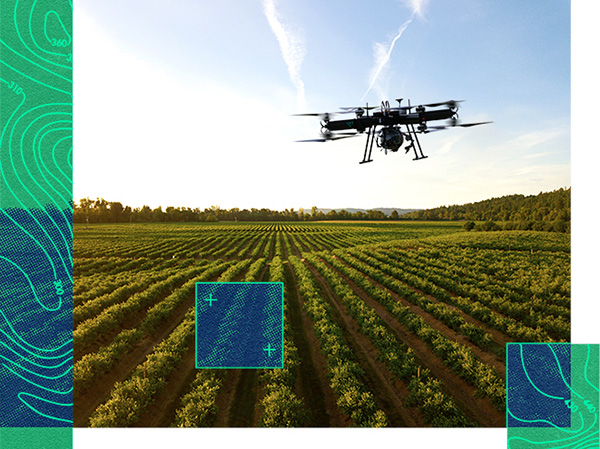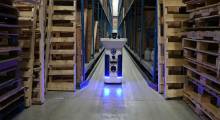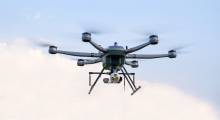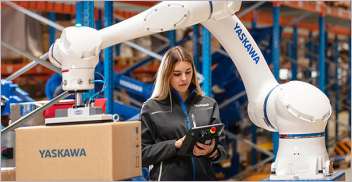Precision.AI Inc., which is working on computer vision and robotics for sustainable agriculture, today said it has closed $20 million in equity and grant funding. The Regina, Saskatchewan-based company said it will use the financing to continue developing a precision farming platform that deploys swarms of drones to reduce the use of herbicides in row crop agriculture.
“Farms of the future must be sustainable and produce healthier foods,” stated Daniel McCann, founder and CEO of Precision AI. “Using artificial intelligence to target individual weeds is a quantum leap in efficiency and sustainability over today's practices of indiscriminate broadcast application of herbicide.”
Precision AI was founded in 2018 and provides fully autonomous spraying and crop protection systems for small to large farms and farm machinery manufacturers.
Precision AI to reduce herbicide use with targeted application
Herbicide spraying is one of the least efficient agricultural activities, with over 80% wasted on bare ground and another 15% falling on the crop, according to Precision AI.
While competitors have focused on high-value, low-acreage crops, Precision AI claimed that its disruptive approach to drone swarming allows for application on large acreage crops at a much lower cost than traditional large farming machinery. It could reduce pesticide use by up to 95% while maintaining crop yield and saving farmers up to $52 per acre per growing season, the company said.
“The cost savings are massive,” said McCann. “And the affordable unit economics of drones makes the technology accessible to even the smallest farm”.
Precision AI's computer vision technology enables drones to apply herbicide to individual weeds in row crop farming. By spraying only weeds and avoiding the crop, yields can be maintained at a fraction of the chemical cost.
Ultimately, the company said it plans to deploy swarms of drones using AI to automate the crop-protection process throughout the entire growing season, optimizing every square inch of farmland on a per-plant basis.
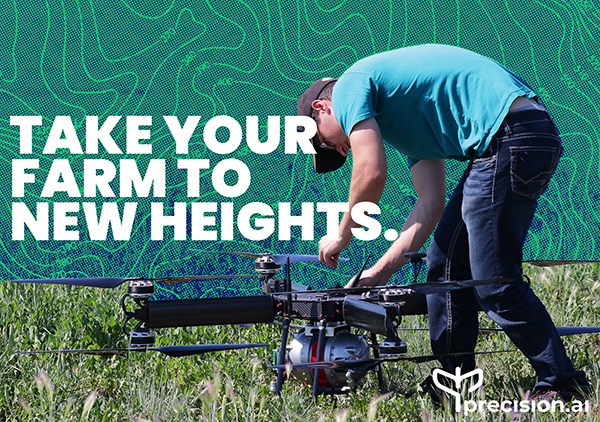
Investors support sustainable agriculture
At One Ventures, founded by GoogleX co-founder Tom Chi, and the Industrial Innovation Venture Fund of BDC Capital co-led Precision AI's seed round. Fulcrum Global Capital and Golden Opportunities Fund also participated, with supporting non-dilutive co-investments from Sustainable Development Technology Canada and Protein Industries Canada.
“We were immediately struck by Precision AI's unique combination of drone technology with precise chemical application,” said Laurie Menoud, a partner at At One Ventures and a member of the board of directors. “Not only can it minimize toxic runoff to protect waterways and downstream ecology, but [it can] also reduce farmers' operating costs and increase their revenue with a zero-chemical residue label.”
“Precision AI's technology, by applying artificial intelligence technologies in the field, will reduce reliance on crop inputs and enable benefits to farmers, the broader food supply chain, and the environment,” said Joe Regan, managing partner at the BDC Capital Industrial Innovation Venture Fund. “We are hopeful that Precision AI can be among the next generation of agtech solutions that change the industry.” He will be joining its board of directors.
The investors added that Precision AI's platform can increase producer competitiveness in the global market with integrated food supply chain traceability and proof of sustainable farming practices.
“Autonomous, precision spraying is the future of modern agriculture,” said Kevin Lockett, partner at U.S.-based Fulcrum Global Capital. “With an increasingly informed consuming public demanding greater transparency into the food it eats, we are excited to partner with Precision AI and the other co-investors in commercializing multiple ways to reduce the use of traditional chemicals within our food system while increasing sustainability and farmer profitability.”
“Precision AI's technology is revolutionizing the agriculture industry. Its innovative application of precision spraying not only prevents the overuse of herbicides, but [also] reduces operating costs for farmers and delivers improved and sustainable crop-protection practices,” said Leah Lawrence, president and CEO of Sustainable Development Technology Canada.
Article topics
Email Sign Up

